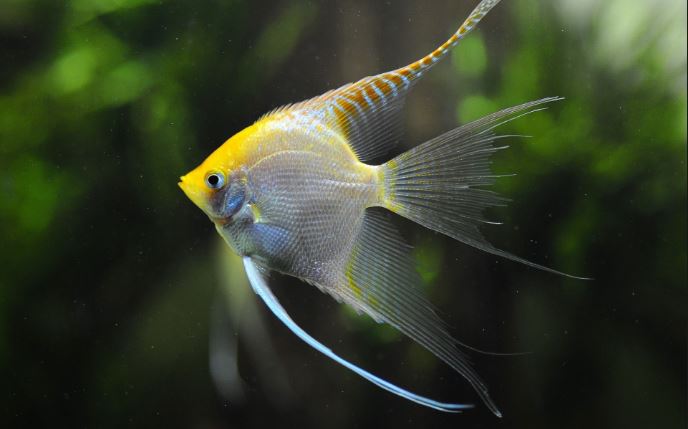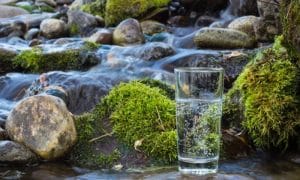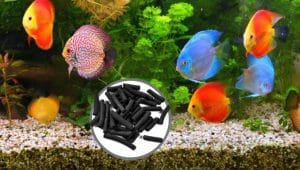
Table of Contents
Do not buy a new tank and fish at the same time
One important part of setting up a new aquarium is ‘cycling‘ the tank. After you are happy with the tank’s set-up, the water can be added and the filter and lights turned on.
This is when you need to wait before adding fish. Your tank’s water needs time to build up good bacteria. It may take a few days or a few weeks depending upon the size of your tank.
Check the tank’s water for ammonia and nitrites every couple of days to be sure that the cycling process is complete before adding fish.
After you notice a spike in the ammonia level, the nitrite level should soon spike as well. When both levels fall again, your tank should be ready for fish.
See also: Best Fish Tanks 2022 – Which One to Choose?
Do not change more than 20% of the water at one time
If you change too much of the aquarium’s water, you may upset the water’s balance. You might be killing off the water’s good bacteria.
If you change less than 20% of your tank’s existing water, you do not have to retreat for chlorine and chloramine. But, changing more than 20% will signal the retreatment process.
When doing water changes, always be careful not to change the tank’s overall water temperature by more than a couple of degrees. Changes in water temperature can cause stress in your fish and put them at risk of harmful bacteria.
Do not overcrowd your fish
An overcrowded aquarium may cause stress and disease that overwhelm your fish. Each fish needs enough room to swim and reach its potential size.
Too many fish in one tank can also throw the tank’s oxygen level off. Fish need a sufficient amount of oxygen to survive.
Do not over-clean
Your tank, its water, and fish are all a delicate environment. They all work together to create the right amounts of good bacteria fish and plants need to survive.
If you remove and clean everything in the tank, you may upset the water’s balance. Only clean one or two pieces of equipment or decorations at a time. Allow time for the tank to adjust before more cleaning takes place.
Do not use cleaning chemicals
It’s just better to be safe than sorry when it comes to cleaning your tank and its equipment. Why risk placing toxins into your tank’s water. Some aquarium equipment and decorations have a coarse texture.
An air stone might trap chemicals that make rinsing ineffective. In order to avoid a potential disaster, do not use any chemicals or soaps to clean anything.
In fact, using old tank water to wash or clean the filter and decorations is your best way to clean them. It may appear as though you are simply not really cleaning, but remember you do not want to upset the tank’s balance and put your fish in a stressful situation.
Do not overfeed
Fish will overeat and this can cause stress. Overeating can put fish in an unhealthy state that resembles the same condition in humans. Also, leftover food may cause water cloudiness or throw off your aquarium’s cycle.
Fish often enjoy eating three or four times a day. Just be sure they consume everything you provide each feeding.
Do not buy more than 3 or 4 fish at a time
As mentioned earlier, fish produce waste. If too much waste is introduced into the tank at once, it may disrupt the tank’s balance.
The tank will need time to balance itself out when adding new residents. Monitor the fish and water to be certain no problems were caused by the new additions.
Some problems that might occur by the addition of too many fish at once are; a lack of oxygen in the tank, water imbalance, and stress.
Add small numbers of fish and check them for any diseases or infections before adding more fish.
Do not depend solely on scavengers
Most bottom-dwelling fish, also known as scavengers, can help keep both the aquarium’s substrate and glass clean.
However, you are still going to have to help them. You will still need to clean the tank’s gravel and glass on a regular basis.
Keeping these helpful tips in mind as you care for your aquarium fish will most certainly add to the pleasure of keeping tropical fish.











I never would have thought of giving a fish tank time to build up good bacteria before introducing fish into it, but I guess it makes sense since there would be bacteria in a fishes natural habitat. I would imagine there are probably even bacterial starters of some sort that you could add to your fish tank to help them out. I would bet that it would be a good idea to talk about things like that with the clerk at a fish store when considering purchasing a new fish.
You are right, dear author. All of these reasons “Not” must be written on a sheet of paper and attached near the aquarium novice. Good luck to you, write more interesting articles